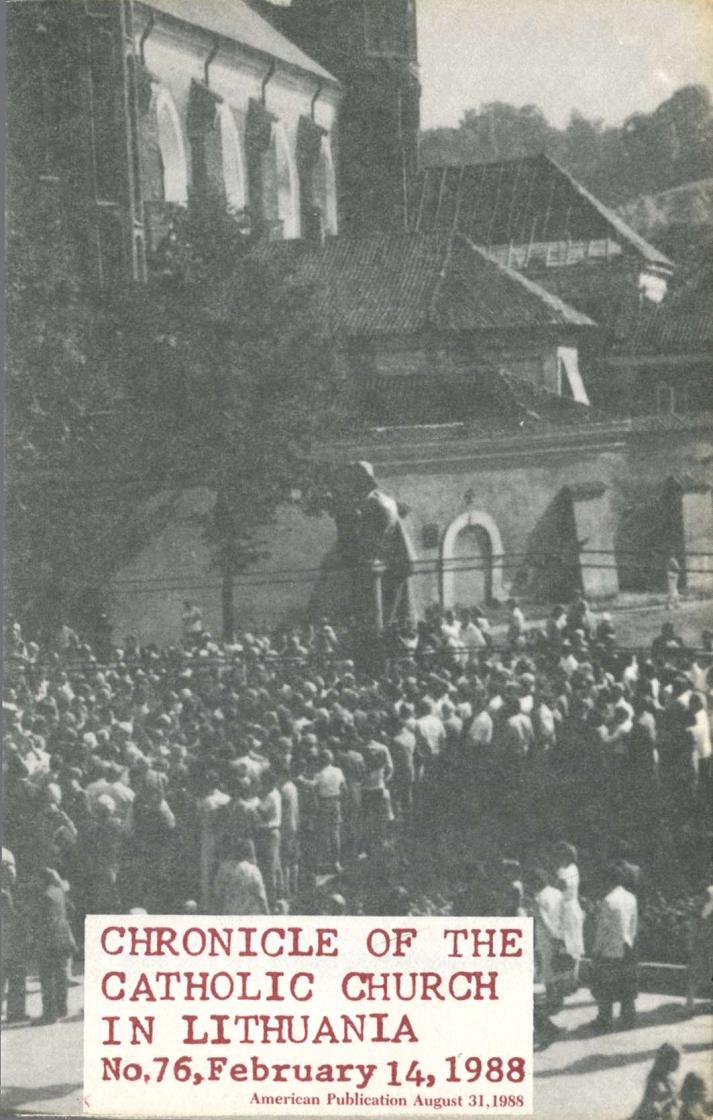
Appearing since 1972
Read this and pass it on!
THE CHRONICLE OF THE CATHOLIC CHURCH IN LITHUANIA, NO. 76 
In this issue:
1.A Look at the Past Year, 1987
3.From the Letters of the Late Father Juozas Zdebskis
8.New Underground Publications
Lithuania February 14,1988
The jubilee year is past, upon which so many hopes had been pinned, and for which preparations had gone on for so long. Have those hopes and longings been justified? From a surface look, it would seem not. Most of the hopes were shattered.
Our Holy Father, John Paul II, never did come for the jubilee celebration. The government atheists prevented the Holy Father from meeting with the Catholics of Lithuania.
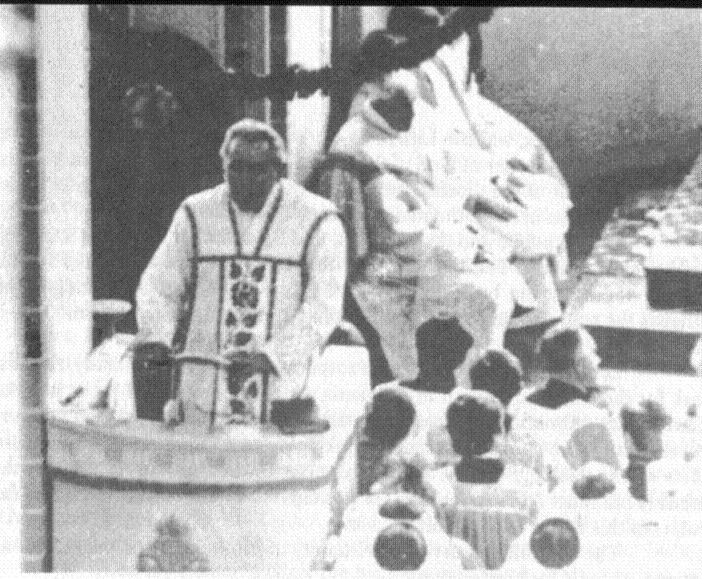
Father Svarinskas preaching in the Kybartai church.
Some placed great hope in the "restructuring and democratization" taking place in the Soviet empire. Such individuals argued that no petition-signing drive is necessary; the confiscated churches will be returned anyway and the imprisoned priests released. There was repeated postponement of the date for the return of Bishop Julijonas Steponavičius, Apostolic Administrator of the Archdiocese of Vilnius, from exile in Žagare to Vilnius. It was hoped that paragraphs of the Criminal Code, aimed at dissidents and believers, would be amended; that "more lenient" Regulations for Religious Associations would be issued; that the teaching of religion would not be forbidden, and that believing youth in school would cease to be persecuted.
To: The General Secretary of the Central Committee of the Communist
Party of the Soviet Union, Mikhail Gorbachev Copies to: The Bishops of Lithuania and the Administrators of Dioceses
Editors of Tiesa From: Priests of Lithuania
A Petition
On September 9,1955, the incumbent pastor of Adutiškis and priest of the Archdiocese of Vilnius, Julijonas Steponavičius, chosen by the Holy Father with the agreement of the Soviet government, was consecrated bishop, and since the end of 1957, has been administering the Archdiocese of Vilnius and the Diocese of Panevėžys.
On January 4,1961, the incumbent Commissioner of the Council for Religious Affairs, attached to the L.S.S.R. Council of Ministers, Juozas Rugienis, revoked Bishop Steponavičius's certification as administrator of the Archdiocese of Vilnius, and ordered him to move to Žagarė, stating that he was doing so byway of carrying out the decision of the Lithuanian S.S.R. Council of Ministers. Rugienis refused to show or read the decision of the Council of Ministers of the Lithuanian S.S.R. itself.
In the August 6,1987 article by the current Commissioner for Religious Affairs, Petras Anilionis, published in Tiesa, a falsified history of the exile of Bishop Steponavičius to Žagarė is presented. In reality, the bishop was calumniated in Tiesa.
In his article, Anilionis claims that the bishop was transferred to Žagarė by the leaders of the Catholic Church in Lithuania. As a matter of fact, then Commissioner Juozas Rugienis tried to obtain from the Administrator of the Archdiocese of Kaunas, Canon J. Stankevičius, a written appointment of Bishop Julijonas Steponavičius to Žagarė, but Canon Stankevičius refused to do so, saying he had no right to do so, since only the Holy Father can transfer bishops.
Then the militia, against the bishop's will, revoked his registration in the City of Vilnius, while state security agents told him to depart for Žagarė immediately, otherwise he would be hauled out by force. When the bishop asked what laws of the state he had broken, the security agents told him that he had not broken any laws, but simply had not carried out the government requirements which were presented to him by the Commissioner.
Specifically, he had refused to order priests in writing not to catechize children, to forbid children to participate in religious ceremonies, to stop arranging retreats for their parishioners, to stop making pastoral visitations, to stop helping out in other churches without government permission, and to stop gathering in large groups for priests' retreats.
Moreover, it was demanded of the bishop that he not allow those priests whose certificate of registration the Commissioner revoked, to do priestly work, and that he be sure to ordain to the priesthood all candidates proposed by the civil government.
The greater part of these requirements have already been revoked, as the highest leaders of the Lithuanian S.S.R. have proclaimed in their meeting of September 17,1987, with the representatives of the Roman Catholic clergy.
At that time, however, for not complying with these demands, incompatible with Canon Law and his episcopal conscience, Bishop Steponavičius was removed from office and on January 18,1961, came to Žagarė, where he was required to take up residence in a delapidated apartment with 34 square meters of living space, without running water, without sewage, without a bath, without a toilet and without central heating. His housekeeper was supposed to take up residence in the apartment.
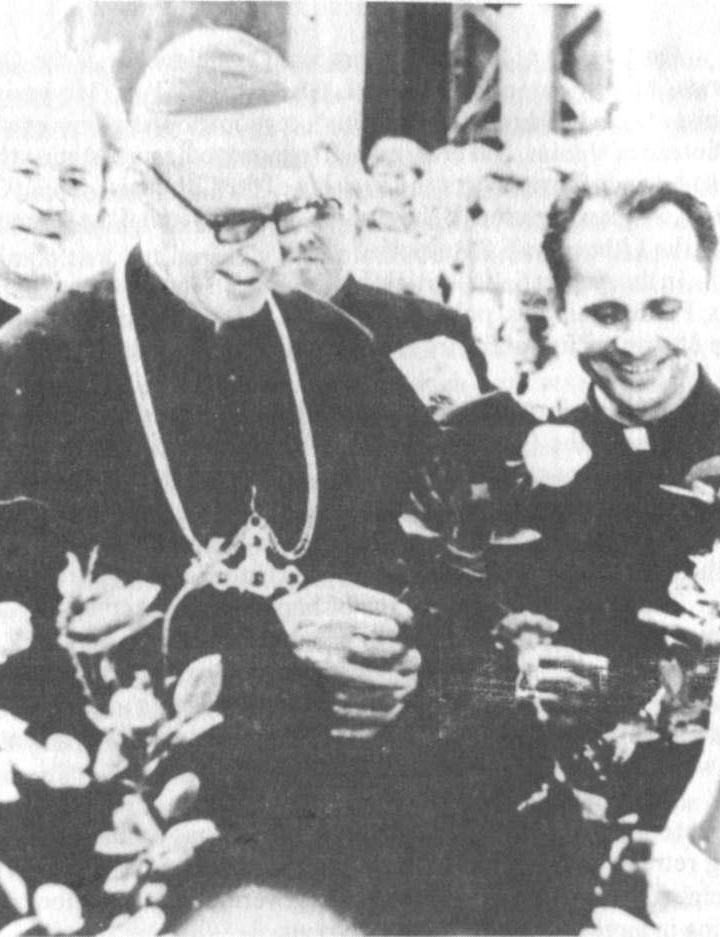
Bishop Steponavičius (left) and Father Tamkevičius.
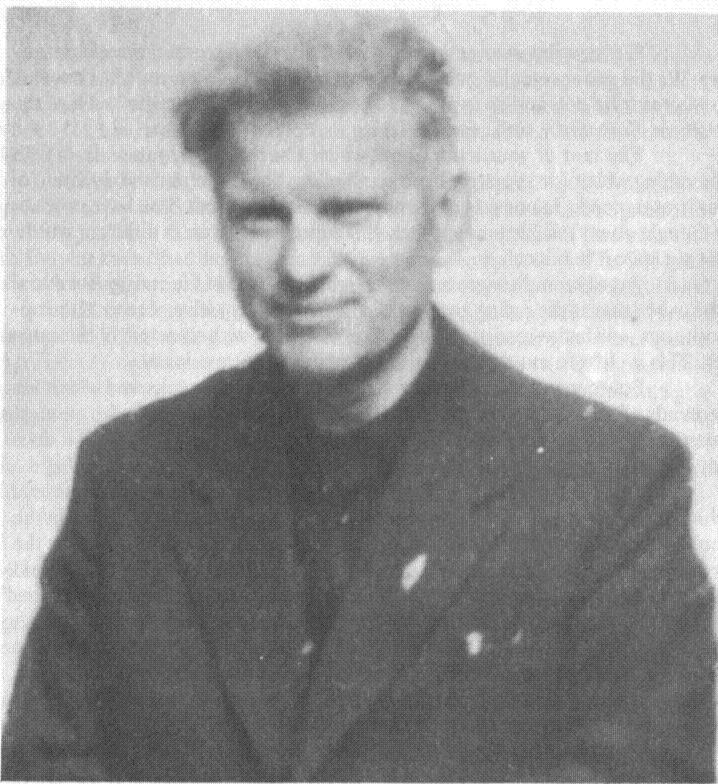
Father Juozas Zdebskis, killed in a 1986 auto accident.
February 5 of this year (1988) marks two years since that zealous priest of the Catholic Church in Lithuania, who was once sentenced to Soviet labor camp for teaching children catechism, perished in an automobile accident. We print here an excerpt from a letter of Father Zdebskis, written in Soviet labor camp.
I wish to place my trust in the mercy of God, hoping that His grace will help me to collect my thoughts and to dwell on one point in your letter, regardless of the fact that they are talking and walking around me.
We have just returned from work. Today, we returned somewhat earlier. We did not accomplish too much, since it is raining. Everyone has crawled in wherever he can, and so to my great joy, I have been able to read a bit of the Brothers Karamazov, and now, I'm trying to reply to your letter.
The part of your letter about which I have thought much deals with something which is a great problem of all of us. The direction and dynamic of our lives depends, in one way or another, on how we solve it. You have probably thought about this idea many times. It is expressed by you in different words. Let me state it in mine.
Kybartai (Vilkaviškis Rayon)
On November 17, 1987, AT 2:00 P.M., Birutė Briliūtė, a resident of Kybartai, was summoned to the Office of the Vilkaviškis City KGB. The interrogation was conducted by Chekist Stepučinskas from Vilnius. During the interrogation, Miss Briliūtė was presented with questions concerning articles taken in the course of a raid September 8,1987. Since Investigator Stepučinskas tried in a tendentious fashion to present literature purely religious in content as vilifying the Soviet system, Briliūtė ignored the interrogation and the next day, through Investigator Stepučinskas, presented to the Chairman of the Vilnius KGB, a petition with the following contents:
"On November 17,1987,1 was summoned to the Vilkaviškis Sub-Section of the KGB for interrogation. Agent Stepučinskas, who conducted the interrogation, questioned me as a witness in a case 'concerning the production and dissemination of literature calumnious in content'.
"Most of the questions posed by Investigator Stepučinskas concerned literature which has nothing and had nothing to do with any kind of calumny (for example, Viksvas' God, the World, and Man, Stasys Yla's Jurgis Matulaitis, a collection of poems by Bernardas Brazdžionis entitled^ Man Travels Tlirough the World).
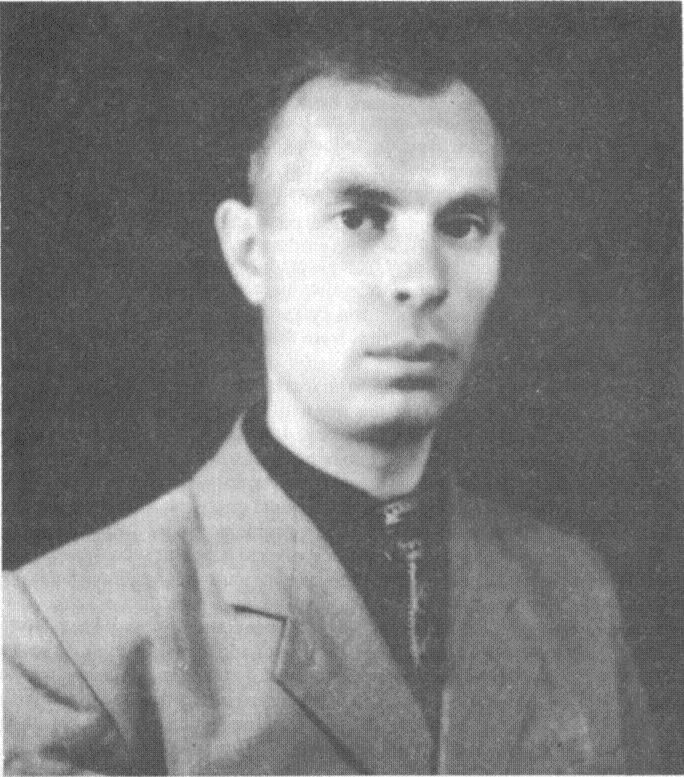
Viktoras Petkus as a student and Catholic activist.
On December 5,1987, Viktoras Petkus appealed to the Chairman of the Supreme Soviet of the U.S.S.R., and the Procurator General. In his complaint, he writes, "On September 21,1987,1 was brought from Ulan-Ude to Bag-darin for three years exile. When I was being taken from the aforesaid prison, I did not receive my things from storage, such as books, a who's who of world writers in manuscript, an electric shaver, letters written to me by my friends, etc., allegedly because they could not find the prisoner-in-charge who is confined in the same prison.
"After they had transported me to Bagdarin, a captain of the militia promised to bring those things the following week, since the Bagdarin militia drive to Ulan-Ude several times a week. For two and a half months, the Bagdarin militia have been feeding me promises that they will bring my things, but they never do.
"I request your help!"
The complaint was sent by registered mail, return receipt requested.
It was not until three months after his release from prison that his personal things were returned to Viktoras Petkus.
Lazdijai
On December 12,1987, Vice Chairman Vanagas of the Lazdijai-Royon Executive Committee summoned the priests of the Rayon of Lazdijai to the Offices of the Executive Committee of the Town of Vcisiejai, and warned them that priests commit a criminal act inviting other priests to religious festivals without consulting the rayon government. Also, crosses cannot be erected in churchyards without permission, as Father Vincentas Jalinskas did, for instance, in Lazdijai.
Lazdijai Rayon Vice Chairman Vanagas expressed annoyance that the faithful assembled in Rudamina were spreading the word that Father Juozas Zdebskis was murdered. In the opinion of Vanagas, there is no proof for it, and accidents happen everywhere to everyone. So this should not be done.
The priests, for their part, brought up to Vice Chairman Vanagas the unsuitable behavior of teachers when they herd schoolchildren out of church at funerals. They also stated that organizing excursions is not a crime, so the church watchman of Lazdijai, Alvydas Vainoras, who had organized an excursion to the Festival of the Mother of Mercy at the Gates of Dawn in Vilnius, and Žemaičių Kalvarija, has been fined 50 rubles unjustly.
Panevėžys
In December, 1986, Stanislova Stanevičiūtė, Instructor in Atheism at the Panevėžys School of Medicine, demanded of her students during a lecture that they write a paper, in which they would demonstrate that there is no God.
Surmising from reading the papers that student Neringa Dalbokaitė is a believer, she began actively "educating" her. Instructor Stanevičiūtė, summoning Miss Dalbokaitė to the Lenin Room, expressed annoyance that Neringa, being a believer, joined the Communist Youth Organization.
Miss Dalbokaitė explained that when she enrolled in the Communist Youth, she had been only fourteen years old, and dependent on her parents, who are non-believers.
This reply was followed by a whole list of questions supplied by Instructor Stanevičiūtė: "Who pushed her into religion? Where did she get literature? When did she start believing? Who brought her to church the first time?"
For further "education", the instructor in atheism brought in the usual weapon of the atheists: vilification and insulting of the Church.
Aušra (Tlie Dawn), No. 60(100). In September 1987, the underground publication Aušra , No. 60(100) appeared. In the introductory article of the publication, an appeal by a group of Lithuanians to people of good will in countries throughout the world, an attempt is made to call world public attention to the Molotov-Ribbentrop Pact of August 23,1939.
In the appeal, a request is made: "Do not hesitate in the face of injustice and the suffering of others! With all the information media at your disposal, publicize the plight of the Baltic States, and ask the leaders of your governments in the next general session of the U.N. Assembly to bring up for discussion the question of the forcible incorporation of the Baltic States into the Soviet Union. In the article, "Let Us Give Them Every Kind of Support," the problem of Gintautas Iešmantas, Povilas Pečeliūnas and other prisoners is brought up. A demand is made for unconditional rehabilitation of political prisoners and prisoners of conscience, and the plight of human rights in the Soviet Union is discussed.





